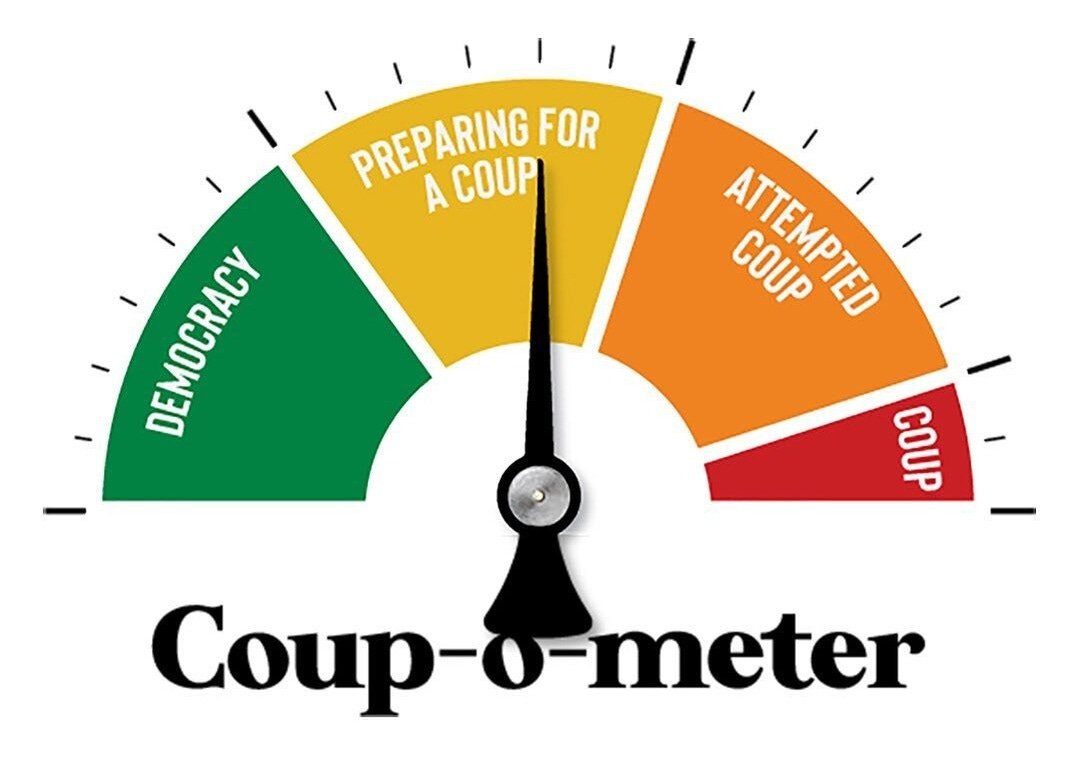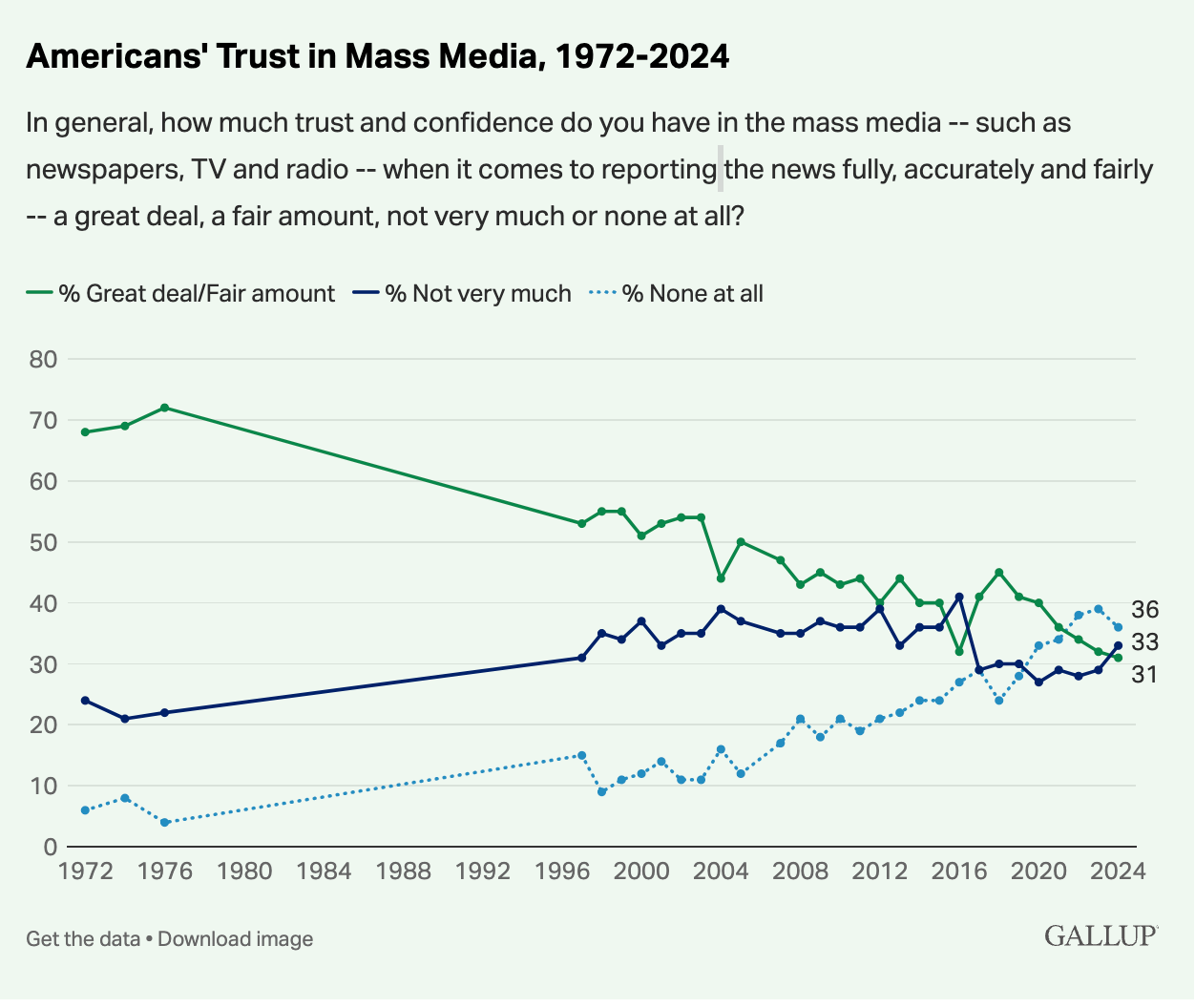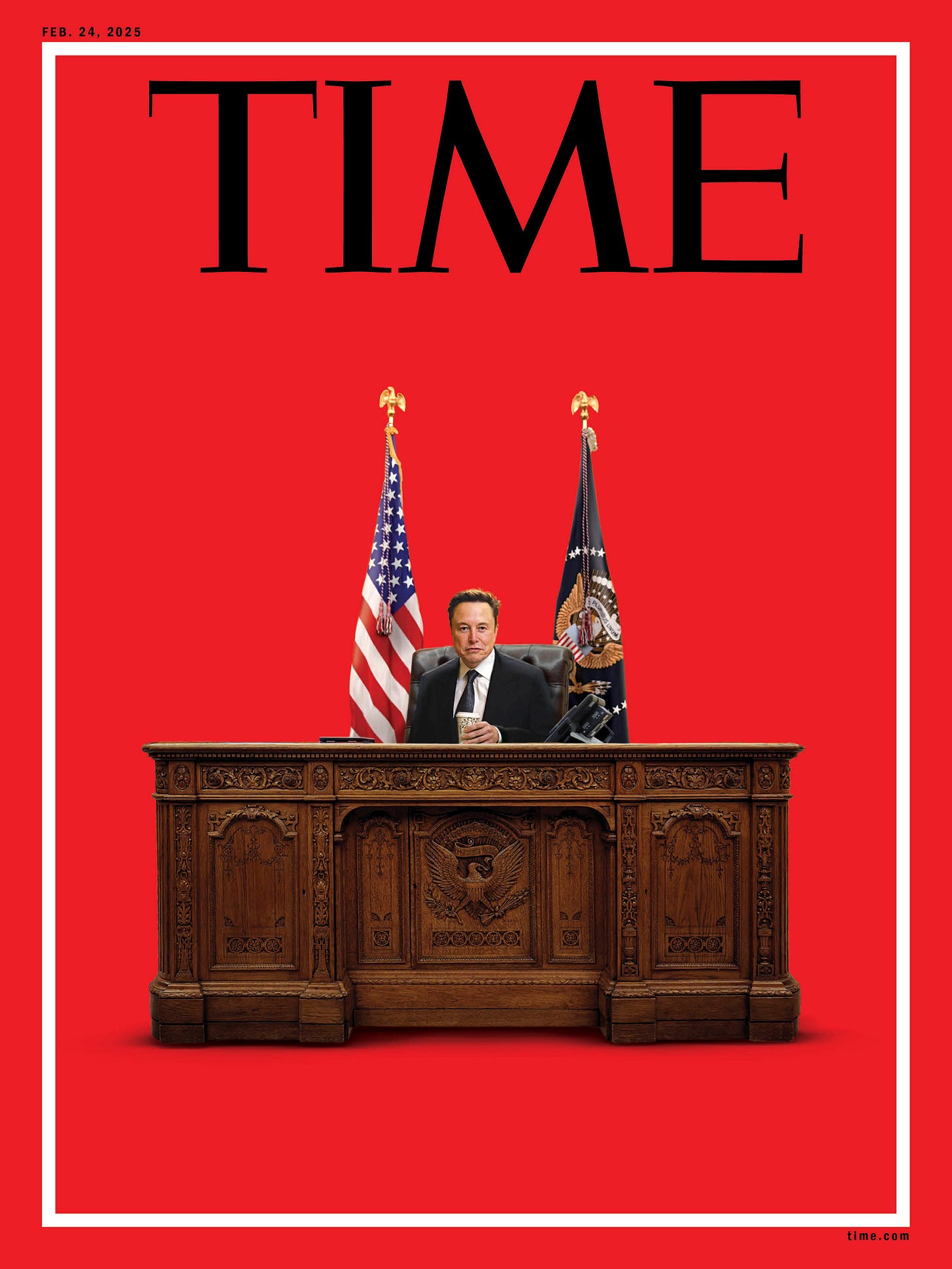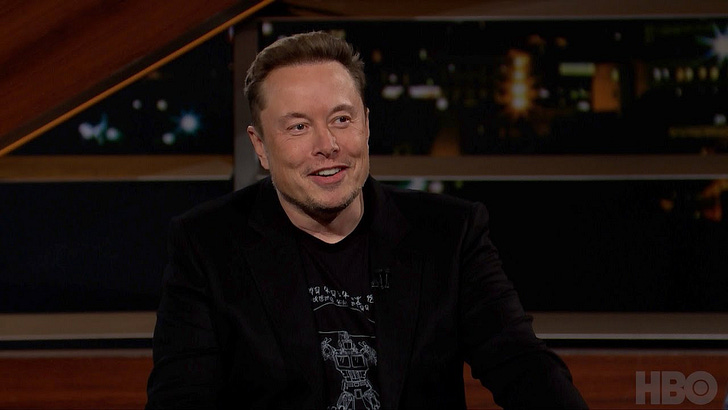The Fourth Estate Has Fallen
To paraphrase Tom Waits, the world is a hellish place, and bad journalism is destroying the quality of our suffering.
Welcome to the weekend edition of The Experiment, your official hopepunk newsletter. If you’d like to support my work, become a paid subscriber or check out the options below. But even if you don’t, this bugga free. Thanks for reading!
A little over eight years ago, when it was still possible to imagine a country that would come to its senses, The Very Online spent a lot of energy worrying over whether The New York Times would ever call Donald Trump, a robust and enthusiastic prevaricator if there ever was one, a liar.
To anyone who’d ever followed his career as a real estate and casino huckster, this idea was silly. Of course Trump was a liar. He’s a first-ballot Hall of Famer when it comes to lying. He’s three of the four heads on the Mount Rushmore of Lying. Good lord, over his first term in the White House, the Washington Post documented more than 30,000 “false or misleading claims,” an average of 21 “erroneous claims” a day.
But to national political journalists, embracing this obvious fact presented something of an ethical dilemma. They could write that something was a “false statement” or “factual inaccuracy” all the livelong day, but to write that Trump lied carries the added burden of proof that Trump intended to deceive. And in doing so—that is, in writing down the obvious truth and putting it in the newspaper—would go beyond merely describing events and enter into the drawing of conclusions, from objectivity to taking sides.
One problem with this is that they were only too happy to quote Democrats calling Trump a liar, which falsely presented factual matters as partisan warfare. This not only absolved political journalists from having to write that the sky is blue, but it created headspace in the country for the idea of alternative facts and the notion that matters of fact are matters of opinion and therefore protected by certain inalienable rights. (See also: vaccines)
It took Trump resurfacing his birther smear against Barack Obama in Sep. 2016 to push The New York Times over the hump. This was such a big deal at the time that Dean Baquet, then the Times’ executive editor, went on NPR to talk about the decision, and the Washington Post covered it like a real news event.
“I think in the last few weeks, he's sort of crossed a little bit of a line where he's actually said things — I think the moment for me was the birther story, where he has repeated for years his belief that President Obama was not born in the United States. That's not an obfuscation; that's not an exaggeration. I think that was just demonstrably a lie, and I think that “lie” is not a word that newspapers use comfortably,” Baquet told Steve Inskeep.
The ensuing eight years haven’t been the greatest for political journalism. Trust that the news media reports the news fairly and accurately is at a record low, a trend driven mainly by Republicans but joined lately by Democrats. Meanwhile, news deserts are blooming, leaving 55 million Americans without access to local news, which probably doesn’t matter much because anyone under forty is getting their news from agitprop antisocial media apps anyway.
News organizations are settling lawsuits brought by Trump and his allies, writing massive checks as protection money for their more lucrative corporate holdings as ABC News did to protect its parent Disney and CBS News is expected to do to aid Paramount’s planned merger with Skydance. Add Jeff Bezos and the Washington Post to that funeral pyre as well as Patrick Soon-Shiong and the Los Angeles Times while we’re at it.
All of which is to say that an enfeebled, corrupted, and receding news media is ill-suited to meet this moment in American history. If you read NPR’s coverage, you’d think Elon Musk’s DOGE initiative is simply identifying spending cuts. The Times comes closer, calling it a “broadside against government.” Time gets even closer: “Inside Elon Musk’s War on Washington.”
It’s a coup. Specially, it’s an administrative coup, or soft coup, which a pro-democracy group defines as an “illegal overthrow of a government, but achieved primarily without overt violence and relying heavily by claiming powers, intimidation, bullying, extortion, threatening media, and thereby seizing all powers.” Check, check, and check. Coo coo ka choo.
Ironically, it’s only those outside of political journalism who seem capable of identifying water as wet. Charlie Warzel, the tech journalist who is a staff writer at The Atlantic, seems unusually up for this. “Elon Musk’s bureaucratic coup is under way,” he wrote on Monday.
Elon Musk is not the president, but it does appear that he—a foreign-born, unelected billionaire who was not confirmed by Congress—is exercising profound influence over the federal government of the United States, seizing control of information, payments systems, and personnel management. It is nothing short of an administrative coup.
And Jake Lahut of Wired, long the house organ of Silicon Valley, has broken more news about what he calls “Elon Musk’s Takeover” than his Washington-based competition. Even the Bulletin of Atomic Scientists seems more ready to report the news than do traditional sources of political journalism.
I only encountered the idea of an administrative coup this week when scrolling Substack’s Notes. It feels like I’ve retreated to the newsletter app to trade samizdat opinions and information in relative safety. I know Substack has its issues, but the people I surround myself with on here—poets, activists, thinkers, writers, producers—make it feel like a refuge from the misinformation and chaos. In this digital underground, I don’t have to fight over the truth. It just is.
Things are going to get a lot worse before they get better, and they won’t get better easily, or quietly. But we can’t get through this unless we’re able to fix our minds on the truth, and right now the pillar of democracy built to do exactly that has collapsed, so we’re going to have to do it ourselves.
This is a coup.
Jason Stanford is a co-author of NYT-best selling Forget the Alamo: The Rise and Fall of an American Myth. His bylines have appeared in the Washington Post, Time, and Texas Monthly, among others. Follow him on Threads at @jasonstanford, or email him at jason31170@gmail.com.
Further Reading
Vance's birtherism is weirder than you think
We set up a merch table in the back where you can get T-shirts, coffee mugs, and even tote bags now. Show the world that you’re part of The Experiment.
Buy the book Texas Lt. Gov. Dan Patrick banned from the Bullock Texas History Museum: Forget the Alamo: The Rise and Fall of the American Myth by Bryan Burrough, Chris Tomlinson, and myself.












“This is a coup” reminds me of those NHL videos justifying suspensions that begin very factually with phrases like “this is boarding.” I have to laugh to keep from screaming these days.
Sigh, gonna miss them, even in Pop culture like the Mary Tyler Moore spin-off Lou Grant-Journalist doing Journalism, the Founders thought enough to protect it-but it took more stuff, Equal time clause & the Fairness doctrine-but Reagan. Than came all opinion @ll the Time.